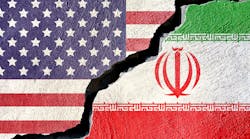Most people—even those whose businesses require shipping products internationally—would be surpised to learn just how many companies are involved in the shipment of one 40-foot container. Even the most conservative estimate places the count around 10: (i) the seller, (ii) the insurer, (iii) the origin warehouse, (iv) the origin trucker, (v) the ocean carrier, (vi) the destination trucker, (vii) the destination warehouse, (viii) the buyer, and (ix) the freight forwarder.
Of course, privately owned ports, rail carriers, trucking subcontractors, ship charterers and ship brokers, to name a few, are often involved in commercial shipments as well, dramatically increasing the number of companies that might “touch” a single shipment.
More often than not the buyer, seller and even the forwarder will not have individual contracts with all of these entities, and most of the time will not even know who they are. Regardless, it is important to realize that these entities are all involved in the shipment, they all have contracts of some sort with some number of other entities within the chain, and they are all being paid for the work they do to move that single 40-foot container.
Why does all this matter to you? If your company ships products internationally, and any entity involved in the shipment is on the Specially Designated Nationals (“SDN”) list or the Foreign Sanctions Evaders (“FSE”) list, your company might find itself subject to secondary sanctions from the United States government.
New Risks
This spring, President Donald Trump announced that the United States was pulling out of the Joint Comprehensive Plan of Action (“JCPOA”), commonly known as the Iran Deal. This decision is having a far-ranging impact on international trade, and supply chain professionals would do well to understand some of the associated risks, particularly those involving secondary sanctions.
As an initial matter, sanctions come in two varieties: primary and secondary. Primary sanctions prohibit U.S. persons or entities from dealing with sanctioned countries, persons or entities. That is why, for instance, it is so hard to find Cuban cigars in America. Secondary sanctions, by contrast, are directed at non-U.S. persons or entities for conduct that occurs entirely outside of the United States.
When the U.S. government decides that a non-U.S. entity has not complied with the sanctions regime, it will place that entity on either the Specially Designated Nationals and Blocked Person (SDN) list or the Foreign Sanctions Evaders (FSE) list. Persons or entities on these lists are said to be “blocked.” Once a non-U.S. entity is sanctioned on the list, U.S. entities are prohibited from doing business with them.
So, for instance, because much of the world’s financial transactions are denominated in U.S. dollars, placing an entity on one of these “blocked” lists could lead to the loss of financing in dollars by U.S. banks, the loss of its U.S. shareholders or the inability to continue any U.S. operations. This is a severe risk most companies are not willing to take. For proof, one need look no further than the list of major companies that have announced their exit from Iran since President Trump’s announcement: French oil company Total SA, shipping company A.P. Moller-Maersk, Peugeot, GE, Boeing and Indian company Reliance Industries, Ltd.
Supply chain professionals must be careful as blocked entities often try to conceal their blocked status through joint ventures and other structures. Any entity directly or indirectly owned 50% or more in the aggregate by one or more blocked persons is also considered blocked regardless of whether the entity appears on the blocked lists.
While secondary sanctions are aimed at influencing the behavior of non-U.S. companies, U.S.-based companies are the ones that must monitor and ensure compliance. The risks for violations of the sanctions can be high. Penalties can also include the loss of export privileges.
After the expiration of the 180-day wind-down period on November 4, 2018, the entities that were “delisted” from the SDN list when the Iran Deal was implemented in 2015 will be relisted on November 5, 2018. And evidence suggests that the U.S. is, to borrow a phrase, “just getting warmed up.”
At the time he announced the withdrawal from the JCPOA, President Trump hinted that additional sanctions would be the “highest level of economic sanctions.”
Two weeks later, U.S. Secretary of State Mike Pompeo appeared to confirm new sanctions when he threatened to impose “the strongest sanctions in history” on Iran. These threatened new, secondary sanctions will likely create additional layers of complexity for supply chain professionals.
Action Steps
Transportation and supply chain professionals should take several actions to protect themselves, including the following.
First, review compliance programs to ensure that the policies and procedures are the latest and best available. A compliance program that might have satisfied regulators even recently may soon be outdated.
Second, know where your shipments are coming from, where they are going and whom you are working with. Your organization’s leadership should work with your general counsel’s office and experienced outside counsel to review the SDN and FSE lists. Your organization’s management should be aware of the sanctions programs and the blocked persons lists, so that any requested shipments to such entities can be flagged and the issue escalated immediately. If an unknown entity requests a large purchase of goods, or offers a contract to manage shipments to an unfamiliar end user or destination, your organization must perform due diligence before taking on the new business.
Third, ensure that your contracts address violations of sanctions laws. For instance, consider consulting with your general counsel and outside counsel about adding a reference to the SDN and FSE lists, or even attaching them to your contracts, and including a requirement that your trade partner(s) will monitor the lists, will not subcontract with any agencies on the lists and will defend, indemnify and hold harmless your organization for all violations committed by its subcontractors or any other downstream third parties they work with. It is important to alleviate contractual duties in the event that performance would be in breach of sanctions to avoid breach of contract actions and obtain indemnity.
Vince Nolan is a member of Duane Morris’ Iran Sanctions Practice and practices in white-collar and complex commercial litigation.
Joe Pangaro has experience in high-stakes cases involving a wide range of commercial issues, including class actions and breach of contract disputes.



